Inaugural AfroFestSA sparks potential as premier African event
AfroFestSA has enormous potential to become a flagship event, not just for Cape Town, or only South Africa, but also for Africa as a whole. The inaugural event, which ran over eight days, from 15 to 23 December 2023, was more than “just another music festival”.
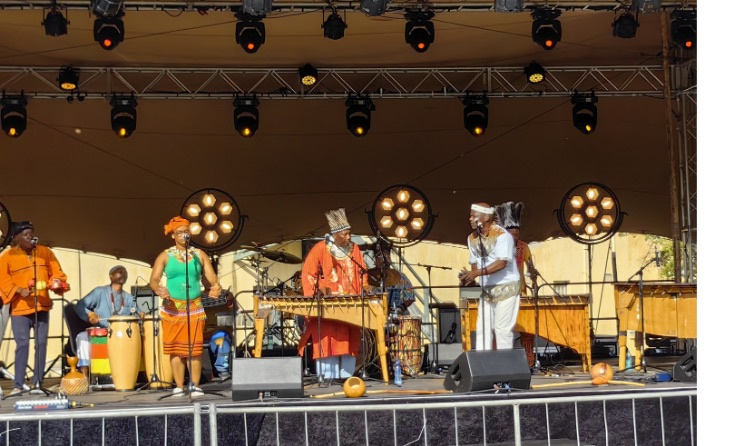 African percussion group Amampondo at AfroFestSA 2023.
African percussion group Amampondo at AfroFestSA 2023. Khoisan blessing of the venue. Photo: Grant Williams
Khoisan blessing of the venue. Photo: Grant Williams Caroline Blundell.
Caroline Blundell. Ammoye.
Ammoye.
Venues for the music over the first five days ranged from Touch of Madness in Observatory to Guga S’thebe in Langa, from the Joseph Stone Auditorium in Athlone to The Commons in Muizenberg. Lovely as this was, providing a smorgasbord of musical delights, the heart of the festival was set in the Castle of Good Hope on Friday 22 and Saturday, 23 December.
The Castle, which is not really a castle but rather a fort, is a Cape Town landmark and a historical monument. It is considered to be “the best-preserved example of a 17th-century architectural structure in the entire world”. The front courtyard, where the festival was held, could easily hold well over 2 000 people, including the stage for the performers. However, it is tainted by the divisive role it played in South Africa’s colonial history. So it was an inspired idea to incorporate a Khoisan blessing of the Castle at the start of the festival.
Perhaps the cleansing of the blessing, combined with the healing power of music, helped a few restless spirits find peace. What was certain was that the atmosphere was charged with an energy greater than the sum of exceptional music and audience enthusiasm. You cannot capture this sort of energy in words, or on recording devices, but Carol Muller, a Cape Town-born ethnomusicologist, and currently a Professor of Music at the University of Pennsylvania, was there recording specific artists for educational purposes. Humanity has a lot to learn, or re-learn, about the power of music.
An important component of any event of significance in the performing and creative arts is education and community development initiatives. AfroFestSA do not disappoint in this regard, with their plans for free workshops and information sessions. The sessions would include indigenous music, mainstream music education, music theory, performance, and the music industry generally. These will be held at various music venues and community centres. The speciality workshops will include Entrepreneurship, Media Relations, Social History and Business Networking.
AfroFestSA collaborated with the Koena Art Institute, which was hosting a stunningly beautiful exhibition of sculptures, paintings and mixed-media works created by Khoi and San artists at the Castle. Creatively executed, powerfully intense, and deeply moving, this is an art exhibition not to be missed.
Musical highlights out of the 12 performances on 22 Dec, and the 11 performances on 23 Dec, were many (more than I could possibly do justice to) but what grabbed my attention, was the energy and sheer danceability of much of the music. It’s a sad truth that live music consumption by Western-influenced audiences is to simply sit and listen. They feed on the energy the musicians put into the music and suck it up without giving anything back, apart from polite applause. The audience needs to be active participants, dancing, moving, and giving energy back to the musicians. And this is exactly what happened at AfroFestSA, creating a dynamic and special relationship between everybody. Despite the relatively small number of people attending, this was an absolute knock-out event of high quality in full flight. Highlights included:
Amampondo, who are an African percussion group started in 1979 by Dizu Plaatjies, who, along with people such as the late Latozi “Madosini” Mphahleni, has been central to the preservation of traditional African music in South Africa.
Hassan'adas and Guests were a funky, up-tempo joy to hear live, with world-class percussionist John Hassan driving the beats. His high-energy performance had the crowd rocking.
The Bongani Sotshononda Quartet blend jazz, indigenous rhythms, and world music, creating unexpected riffs and rhythms. with Bongani Sotshononda constantly pushing musical boundaries.
Hilton Schilder, making a welcome comeback to the Cape Town jazz scene with The Hilton Schilder Goema Club. Goema is the quintessential sound of Cape jazz. Along with the south-easter and Table Mountain, goema makes Cape Town what it is. And it is people such as Hilton Schilder, Mac McKenzie and Robbie Jansen who we have to thank for keeping it front and centre of the SA jazz scene.
Little Giants were started in 1999, by the late Ezra Ngcukana and George Werner. George still shepherds and teaches this ever-changing group of young musicians. As the teenagers mature and move into their early 20s, they move on to join other bands, or start their own bands, making way for another upcoming teenager.
Ernestine Deane and friends were a gentler and quieter set. Ernestine began with comments about the symbolism of playing in the Castle courtyard, about the pain-soaked walls, and their music was poetic, spiritually soothing, hauntingly beautiful.
The Alvin Dyers Trio, with Zeke le Grange sitting in, has been playing at various Cape Town venues for a few years now. Alvin, quiet and unassuming, is not given showy moves and gyrations. His assured and absolute mastery of his instrument says it all. Superbly backed by his long-time sidemen, Roy Davids and Tino Europa, having Zeke le Grange’s horn adding punchy growls injects an edgy energy that never flagged.
Sons of Selassie and Bro Manchi have been around for close to 40 years, but somehow, our paths just never crossed until this festival. Which is a pity, because they blew through cobwebs and mental debris, leaving me breathless, smiling, and yelling for encores!
Khaya Mahlangu is one of the elder statesmen of South African jazz. Luminary, veteran, and legend, are words that have been used to describe him, but apt and accurate as they are, they don’t do justice to the fullness, depth and beauty of his compositions. You need to hear him play.
AfroFestSA is potentially a huge boost for African music and could become one of the flagship events of the African music calendar. It deserves to be better supported than it was on its maiden journey, but this could simply be unfortunate timing. Launching the event just before Christmas, when most people have blown their monthly discretionary spend on gifts and festive season fare, or have left for holiday destinations, could explain the poor turnout. Whatever the reason, those who missed it have good reason to kick themselves. The quality of the music, and the slickness of the organising, were excellent.
AfroFestSA has the potential to step into the gap that has been left since the last Cape Town International Jazz Festival in 2019. Whether it does or it doesn't is not important - it's an opportunity for an annual celebration of African music, and African culture and heritage in the most beautiful city in the world.

























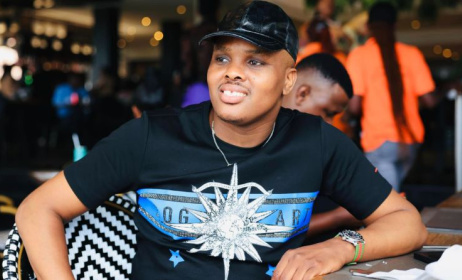

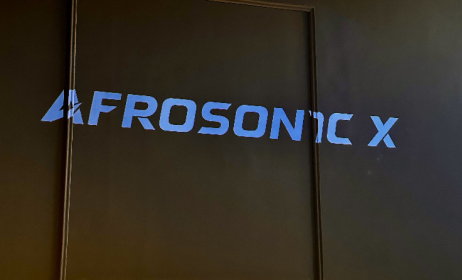

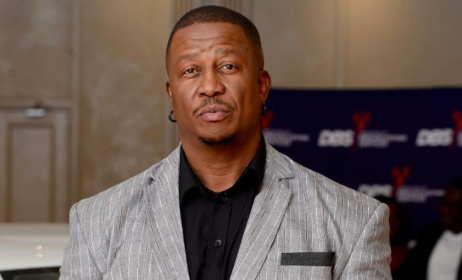


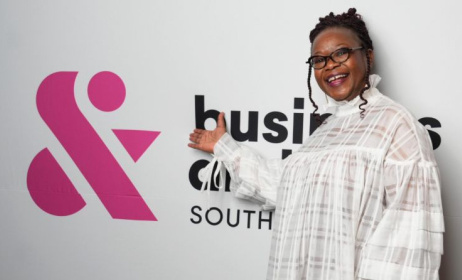
Comments
Log in or register to post comments